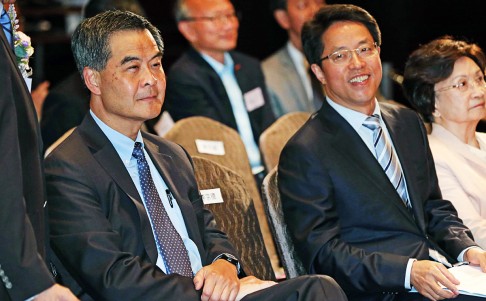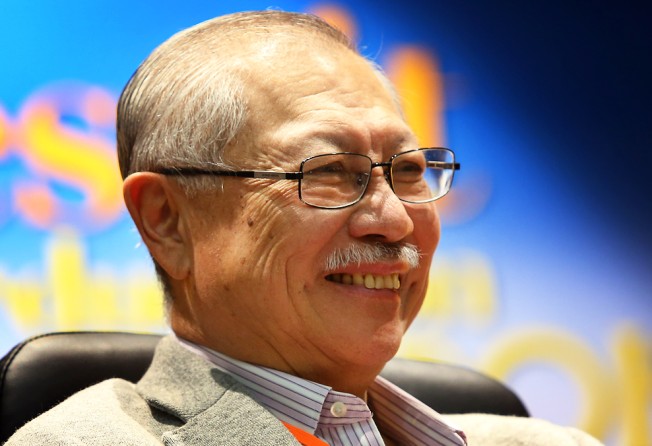
I don’t understand Beijing official’s comments on Hong Kong leader’s ‘transcendent status’, says former constitutional affairs minister

A retired official has joined the debate over whether Hong Kong’s leader has a “transcendent” status over other branches of government, saying he ”does not understand” the theory uttered by Beijing’s man in the city.
Michael Suen Ming-yeung, who was secretary for constitutional and mainland affairs between 1997 and 2002, today joined the row started by Zhang Xiaoming, director of Beijing’s liaison office in the city.
Zhang on Saturday said the chief executive enjoyed a “transcendent legal position” over the judicial and legislative branches of the government. Yesterday, Chief Executive Leung Chun-ying echoed his remarks.
“I haven’t read the full speech … I don’t understand why [Zhang] has such an interpretation,” Suen told a Commercial Radio show this morning.
“If his speech has raised so many doubts and speculation, it’s worth [Zhang] considering a clarification.”
Suen, who also served as chief secretary and education minister, said he did not understand why Leung would agree he held such a superior status.
“My understanding is the chief executive … has an unusual legal status, a unique position. For example, he is not subject to the laws on prevention of bribery,” Suen said. But to say Leung was “transcendent” could not mean he had absolute power, he added.
Zhang on Saturday also said the concept of separation of powers between the executive, legislature and judiciary was confined to sovereign states and could only serve as a reference for Hong Kong.
His comments alarmed pan-democratic politicians and the Bar Association. Chief Justice Geoffrey Ma Tao-li also weighed into the debate yesterday, stating the Basic Law protected the independence of the judiciary and everyone was equal before the law.
The discussion should not dwell on the wording, Suen said, as long as Hong Kong still enjoyed judicial independence and the chief executive conducted business in accordance with the law and not above the law.
The chief executive’s pivotal duty was to serve as a bridge and “resolve differences” between mainland China and Hongkongers, he added.
Meanwhile, Secretary for Constitutional and Mainland Affairs Raymond Tam Chi-yuen endorsed Zhang’s comments. “There was nothing in what [Zhang] said that was inconsistent with objective fact and the Basic Law,” he said.
Tam added that “the Basic Law has clearly stated the chief executive’s constitutional status … and if there is any disagreement on the [people’s comments about it], we should go back to the Basic Law’s wordings and articles”.
Additional reporting by Tony Cheung